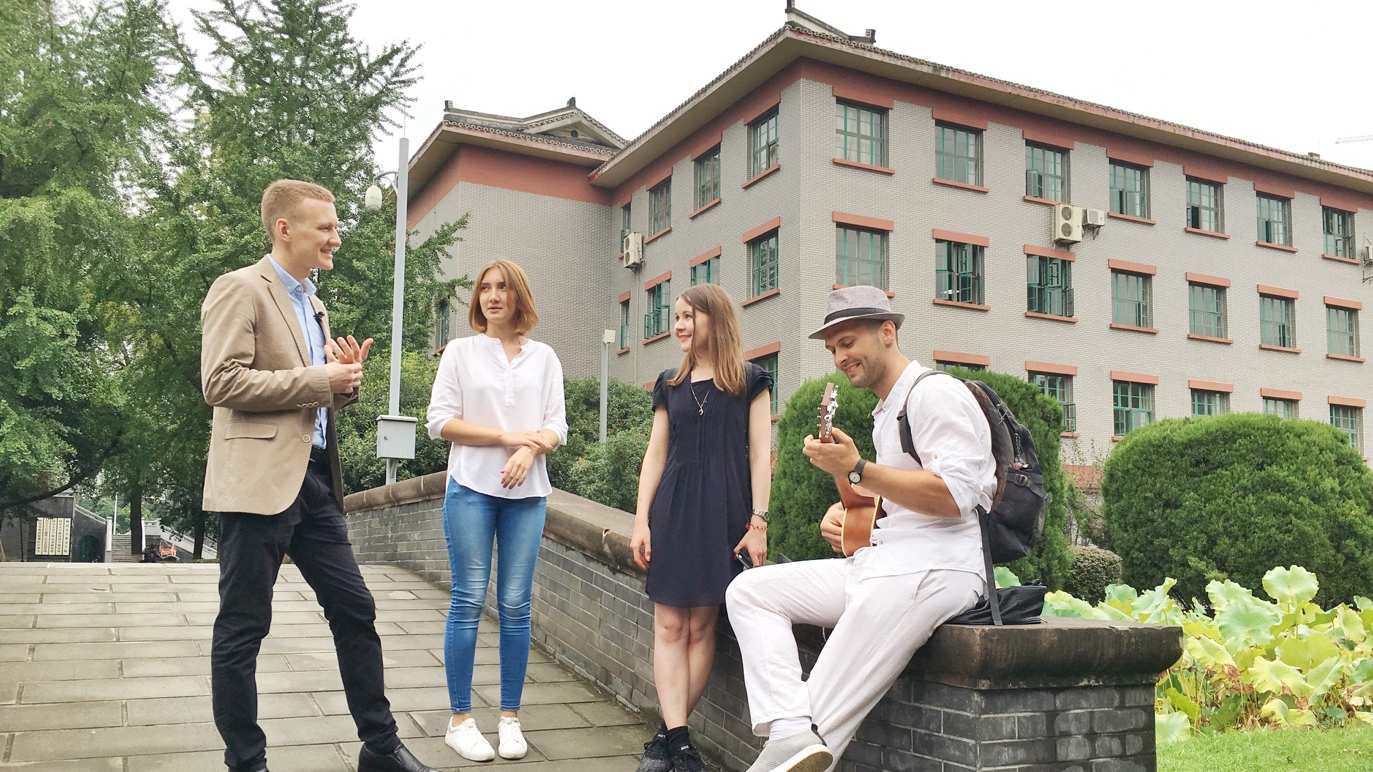
(Photo: CGTN)
At the beginning of this year, China and Russia declared a joint regional cooperation treaty. Among the many highlighted programs is a cooperation mechanism between areas along two major rivers in China and Russia, namely "Yangtze-Volga" cooperation mechanism.
Launched in 2013, the program includes six regions along the upper and middle reaches of the Yangtze River in China – Anhui, Jiangxi, Hubei, Hunan, Sichuan and Chongqing. They account for around 20 percent of China's total GDP and play a key role in China's agricultural and manufacturing sectors.
It also covers the 14 federal provinces along the Volga River in Russia, taking up 6.1 percent of Russia's land, and around 15 percent of the Russian GDP. Similarly, the district is a key region for Russia's agriculture and industrial production.
As one of the pioneers, Sichuan Province in southwest China has worked out solutions to cement closer trade relations with Russia, with a trade volume in 2017 seeing 60 percent year-on-year increase, and promote cultural and people-to-people exchanges.
Danil Galiullin, from Russia, is a second-year doctoral candidate receiving medical education at West China School of Medicine of Sichuan University. He is among the 40 plus Russian students who have benefited from the "Yangtze-Volga" cooperation mechanism in Sichuan Province.
The 26-year-old young man spends most of his time in the laboratory, focusing on gastric cancer research. From time to time, he joined the operation team at West China Hospital, affiliated to Sichuan University, to enhance his clinical skills.
In fact, Sichuan University is now spearheading the exchange program after launching the "Yangtze-Volga" University Alliance in October 2017, which involves over 60 universities in China and Russia.
Sichuan Province is currently operating an express railway system linking its capital city Chengdu with Europe, including Russia. Along with direct flights to major Russian cities, the province is poised to create more interactions.
Over the years, the exchange program has yielded great outcomes in areas like education, tourism, culture, training, and youth.
While speaking with CGTN, Danil Galiullin said that the program offers him an enormous opportunity to learn from and work with some of the most qualified professors in China and abroad. And he has decided to return to his home country after finishing the study in 2020.
For most of the students, with the "Yangtze-Volga" cooperation mechanism in place, their stay in China will etch an everlasting legacy in Sino-Russian friendship.


